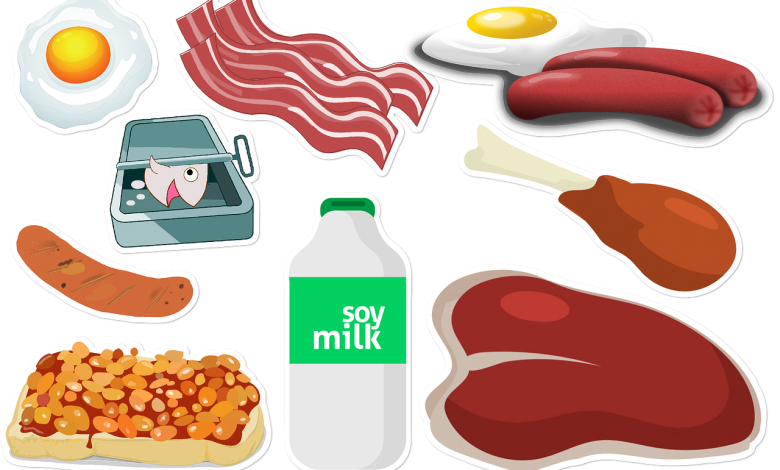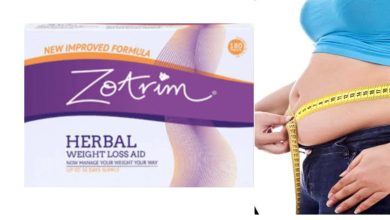10 Essential Proteins for Oncology Patients: A Comprehensive Guide

A cancer diagnosis can be a life-altering experience, and cancer treatment can take a toll on the body. Maintaining optimal health and nutrition during and after treatment is paramount for oncology patients. Proteins support various bodily functions, including tissue repair, immune system health, and overall well-being.
In this article, we will discuss ten essential proteins for oncology patients to help them navigate their cancer journey with a focus on nutrition and recovery. We will explore the sources and benefits and outline tips for incorporating these proteins into their diet.
What are Proteins
Proteins are fundamental macromolecules that serve as the building blocks of life.
They are a diverse group of complex molecules composed of amino acids and they play an essential role in the structure and function of cells, tissues and organs throughout the human body.
Proteins have many functions, including supporting growth and repair, regulating enzymatic reactions, serving as structural components and contributing to the immune system’s defence against pathogens.
In our diet, proteins are derived from various sources such as meat, dairy, legumes and plants and they provide the body with the necessary amino acids required for multiple physiological processes.
These amino acids are linked in unique sequences to create specific proteins, each with a distinct function, making them a cornerstone of biological function and overall health.
Albumin
Albumin is a key protein produced by the liver and found in blood plasma. It plays a critical role in maintaining the nutritional status of oncology patients.
Low albumin levels are often associated with malnutrition, inflammation and poor treatment outcomes. Therefore, maintaining adequate albumin levels is crucial for patients with cancer.
Sources:
- Eggs
- Dairy products
- Lean meats, such as chicken and turkey
- Fish
- Legumes
Benefits:
- Helps maintain fluid balance in the body
- Supports wound healing and tissue repair
- Aids in transporting essential nutrients
- Useful for corrected calcium
- Enhances the immune system
Tips:
- Consume protein-rich foods like eggs and dairy products.
- Consider protein supplements under the guidance of a healthcare professional.
Whey Protein
Whey protein is a high-quality protein derived from milk during the cheese-making process. It is precious for oncology patients due to its excellent amino acid profile and quick absorption.
Whey protein can be especially beneficial for those with difficulty meeting their protein requirements through whole foods alone.
Sources:
- Whey protein powder
- Greek yoghurt
- Cottage cheese
- Milk
Benefits:
- Promotes muscle protein synthesis
- Supports muscle recovery and growth
- Easily digestible
- Enhances immune function
Tips:
- Opt for high-quality whey protein supplements.
- Blend whey protein powder into smoothies or shakes for a convenient protein boost.
Casein Protein
Casein is another milk-derived protein that differs from whey in terms of digestion speed.
Casein is a slow-digesting protein – making it a suitable option for oncology patients who require a sustained release of amino acids to support muscle recovery and reduce muscle breakdown.
Sources:
- Casein protein powder
- Cottage cheese
- Greek yoghurt
- Milk
Benefits:
- Promotes muscle preservation
- Supports muscle growth during rest
- Provides a feeling of fullness
Tips:
- Consider consuming casein protein before bedtime to support muscle recovery during sleep.
- Include casein-rich foods in your diet for a steady protein source.
Soy Protein
Soy protein is an excellent plant-based protein source that offers various health benefits for oncology patients. It contains all the essential amino acids – thus rendering it a ‘complete’ protein.
Soy protein is also rich in antioxidants and has been linked to a reduced risk of certain cancers.
Sources:
- Soybeans
- Tofu
- Edamame
- Soy-based products (soy milk, tempeh, etc.)
Benefits:
- Supports muscle health
- Aids in weight management
- Reduces the risk of certain cancer types
- Improves heart health
Tips:
- Include soy-based products in your diet, such as tofu, edamame, and tempeh.
- Use soy milk as an alternative to dairy milk in recipes.
Fish (Salmon, Tuna, Mackerel)
Fatty fish, such as salmon, tuna, and mackerel, are excellent sources of high-quality protein. They are also high in omega-3 fatty acids – offering several health benefits, including supporting cardiovascular health and reducing inflammation.
These proteins can be valuable for oncology patients during and after treatment.
Sources:
- Salmon
- Tuna
- Mackerel
- Sardines
Benefits:
- High-quality protein source
- Rich in omega-3 fatty acids
- Reduces inflammation
- Supports cardiovascular health
Tips:
- Grill or bake fish for a healthy and delicious meal.
- Incorporate fish into your diet at least twice a week to reap the benefits.
Lean Meats (Chicken, Turkey, Lean Beef)
Lean meats such as chicken, turkey and lean cuts of beef are staple protein sources for many people. They are rich in essential amino acids and provide an easily digestible source of protein.
Lean meats are essential for muscle preservation and overall recovery for oncology patients.
Sources:
- Skinless chicken breast
- Turkey breast
- Lean cuts of beef (e.g., sirloin or tenderloin)
Benefits:
- High-quality protein source
- Supports muscle health
- Contains essential vitamins and minerals
Tips:
- Choose lean cuts and trim visible fat to reduce saturated fat intake.
- Marinate or season meats with herbs and spices for added flavour without excess calories.
Eggs
Eggs are often referred to as nature’s perfect protein source.
They are highly nutritious and contain all the essential amino acids – so they are an ideal choice for oncology patients.
The great thing about eggs is that they are very versatile and can be prepared in numerous ways to suit individual preferences.
Sources:
- Whole eggs
- Egg whites
Benefits:
- Excellent protein source
- Rich in essential nutrients, including choline and vitamin B12
- Versatile and easy to prepare
Tips:
- Include eggs in your breakfast or as a snack.
- For those concerned about cholesterol, opt for egg whites, which are low in cholesterol and fat.
Greek Yoghurt
Greek yoghurt, a creamy and delicious dairy product, offers various health benefits to those who consume it.
While it is an excellent source of protein, probiotics and essential nutrients for everyone, for oncology patients, Greek yoghurt can support gut health and aid digestion
In addition, it can also offer them a convenient source of protein.
Sources:
- Plain Greek yoghurt
Benefits:
- High-quality protein source
- Rich in probiotics for gut health
- Supports bone health with calcium and vitamin D
- Aids in digestion
Tips:
- Top Greek yoghurt with fruits, honey, or nuts for added flavour and nutrients.
- Use Greek yoghurt as a base for smoothies or salad dressings.
Legumes (Beans, Lentils, and Chickpeas)
Legumes, including beans, lentils and chickpeas, are plant-based protein sources that offer a variety of health benefits.
They are not only rich in protein but also provide fibre, vitamins and minerals. Overall, legumes are a cost-effective and sustainable protein option for oncology patients.
Sources:
- Black beans
- Kidney beans
- Lentils
- Chickpeas
Benefits:
- Plant-based protein source
- High in fibre for digestive health
- Supports heart health by lowering cholesterol levels
- Provides essential nutrients like iron and folate
Tips:
- Incorporate legumes into soups, stews, salads, and wraps for added protein and texture.
- Explore different types of legumes to keep your meals interesting and diverse.
Seeds and Nuts
Seeds and Nuts – such as flax seeds, chia seeds, walnuts and almonds – are not only a source of healthy fats but also possess a moderate amount of protein.
They are packed with essential nutrients and provide an excellent option for snacking or enhancing the nutritional value of meals.
Sources:
- Almonds
- Walnuts
- Chia seeds
- Flaxseeds
- Pumpkin seeds
- Sunflower seeds
Benefits:
- Good source of healthy fats
- Moderate protein content
- Rich in vitamins and minerals, including vitamin E and magnesium
- Contains antioxidants for overall health
Tips:
- Add seeds and nuts to your salads, yoghurt, or smoothie bowls.
- Enjoy a small handful of nuts as a satisfying and nutritious snack.
Nutrition Tips for Oncology Patients
- Consult a Registered Dietitian: Individual nutrition needs can vary based on the type of cancer, stage and treatments. Consulting with a registered dietitian who specialises in oncology can help create a personalised nutrition plan.
- Maintain Hydration: Staying hydrated is crucial, especially during treatments that may cause dehydration. Water, herbal teas and clear broths can help with fluid intake.
- Opt for Small, Frequent Meals: Eating smaller, more frequent meals can make it easier to meet your nutritional needs, particularly if treatment side effects impact your appetite.
- Focus on Variety: A diverse diet helps ensure you get a wide range of essential nutrients. Incorporate various protein sources, fruits, vegetables and whole grains into your meals.
- Manage Side Effects: Treatment can lead to side effects like nausea, taste changes and mouth sores. Working with a healthcare professional or dietitian can help address these challenges and adapt your diet accordingly.
- Choose Nutrient-Dense Foods: Aim for foods offering the most nutrients for your calorie intake. Some excellent nutrient-dense options include vegetables, fruits, lean proteins and whole grains.
- Monitor Portion Sizes: Adopting portion control can help you manage your weight and optimise your overall nutritional intake.
- Limit Processed Foods: Processed foods are often high in salt, sugar and unhealthy fats. Minimising your intake of processed snacks, sugary beverages and fried foods should be beneficial.
- Stay Active: Engaging in light physical activity – as advised by your healthcare team – can help maintain muscle mass and improve overall well-being.
- Take Supplements: Supplements can be beneficial, especially amino acid supplementation with products from Nutricia. However, you should consult with your healthcare team before taking any supplements.
Conclusion
Oncology patients face unique challenges when it comes to nutrition and protein is a crucial component of their diet.
The proteins mentioned in this article provide a diverse range of options for patients to incorporate into their meals, supporting their overall health, muscle recovery and immune function. Whether you prefer animal-based or plant-based protein sources, there are choices available to meet your individual dietary preferences and needs.
Remember that the nutritional requirements of oncology patients can vary, so it’s essential to work closely with your healthcare team and a registered dietitian to create a personalised nutrition plan. However, by focusing on a balanced diet rich in essential proteins, staying hydrated and managing potential side effects, oncology patients can better navigate their cancer journey and support their overall well-being.





